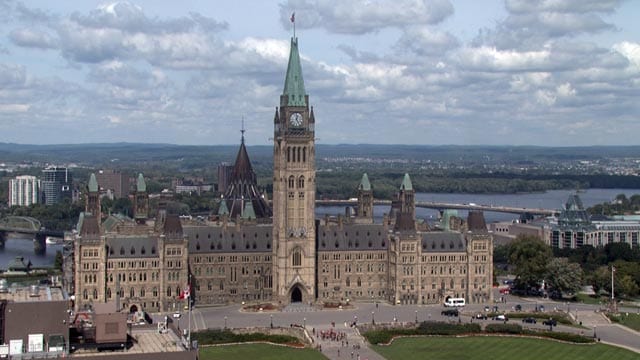
Parliament Hill
A coalition of churches has added its voice to the growing chorus of support for Indigenous rights Bill C-262.
In a June 13 letter to Conservative leader Andrew Scheer, the Canadian Council of Churches emphasizes the importance of Senate passing the bill before Parliament rises for the summer.
“Many churches and faith communities across Canada have faithfully worked – hand in hand with Indigenous Peoples – for the United Nations Declaration on the Rights of Indigenous Peoples (UNDRIP) to be established in Canada as a framework for reconciliation,” Peter Noteboom, general secretary of the council, writes in the letter, before asking, “As the Leader of the Opposition, what actions will you take to ensure that Bill C-262 passes the third and final reading in the Senate?”
Read the letter here: Letter from The Canadian Council of Churches
If passed, the proposed legislation would require the federal government to ensure its laws are aligned with the UNDRIP.
But the bill has been hotly contested by Conservative Senators who say they have not had enough time and opportunity to debate the bill in the upper chamber, and that they fear the legislation could lead to economic and legal uncertainty.
C-262’s advocates, including Cree MP Romeo Saganash, who introduced the private member’s bill in the House of Commons in 2016, say the UN Declaration has been decades in the making and represents the minimum global human rights standards for Indigenous Peoples, and that Parliament heard from more than 70 witnesses over four months before the bill reached the Senate.
(“What actions will you take to ensure that Bill C-262 passes the third and final reading in the Senate?” Peter Noteboom asked Conservative leader Andrew Scheer)
Amid protest by Conservative Senators, C-262 was passed without amendment by the Standing Senate Committee on Aboriginal Peoples on June 11.
It now must be read a third time in the Senate and passed before it can receive royal assent and become law.
But Conservative Senators. have indicated they will not support the bill in its current form.
Any amendments to the bill by the Senate committee would have effectively killed the legislation, since it must pass before Parliament rises for the summer later this week. Otherwise, it dies on the order paper.
“It’s deeply concerning what we’re seeing happen at the Senate,” NDP leader Jagmeet Singh said last Thursday.
“We’ve got democratically-elected members of the House of Commons that voted to pass a bill that would significantly improve the lives of Indigenous people, that would work toward reconciliation, enshrining the United Nations Declaration on the Rights of Indigenous People into law. It’s something we must do. It’s something that’s important to do.”
In the legislature the same day, Singh held the Liberals to account for the delays.
“What is the prime minister doing to ensure that the will of people is defended and these bills are passed?”
Crown-Indigenous Relations Minister Carolyn Bennett responded, saying the government is “moving forward on key legislative initiatives to implement the UN Declaration, including the legislation on languages and child and family services.
“We also supported Bill C-262 as an important next step,” she continued. “We too are deeply disappointed to see that the Conservative leader continues to allow his caucus members in the other place to use partisan delay tactics to prevent this important bill from moving forward, blatantly ignoring the unanimous motion passed by this house.”
While many Indigenous leaders and advocates have said C-262 represents a significant step forward for Canada on its path of reconciliation, the bill is caught in a dispute between the governing Liberals, and the opposition Conservatives, who are pointing the finger at each other.
“If the Trudeau government was fully committed to seeing this legislation pass in both the House of Commons and the Senate, it would have made it a Government Bill rather than a Private Member’s Bill,” Daniel Schow, Scheer’s press secretary, said in a written statement to APTN News.
“Currently, the legal community is divided over the meaning of ‘free, prior and informed consent’ and if existing Canadian laws and regulations could be superseded by implementing the United Nations Declaration on the Rights of Indigenous Peoples,” Schow continued.
“Until a clear definition is provided by the Government of Canada and affirmed in the courts, we will assume that ‘free, prior and informed consent’ means a right to veto. It would be irresponsible for Senators to pass this legislation without a specific understanding of the implications of Bill C-262.”
APTN asked if Scheer had a response to the letter from the Canadian Council of Churches; there was no response.
Former interim Conservative leader Rona Ambrose tweeted last week that she had been told the Tories “will block all legislation including #C337 to make sure #C262 #UNDRIP never passes.”
Bill C-337 is a private member’s bill introduced by Ambrose in 2017. It would require judges to receive training in sexual assault law prior to eligibility for judicial appointment.
C-337 is also before the Senate.
In April, Singh introduced a motion calling on the Senate to pass both bills.
MPs, including Scheer and the Conservative members, voted in support of the motion.
Asked for comment on Ambrose’s tweet, and for confirmation of the former leader’s claim is true or not, Senate opposition leader Larry Smith pointed to the Liberals.
“As this parliamentary session comes to an end, there is a lot of government legislation before us in the Senate,” he said in a written statement. “It is the Government’s responsibility to establish a legislative plan and manage the time lines.
“Long standing Senate conventions dictate that government legislation takes priority in our day-to-day business; if the government felt strongly about Bill C-262 they should have kept their commitment of making this legislation a priority and make it a government Bill.”
Following the Senate’s passage of Bills C-91, the Indigenous Languages Act, and Bill C-92, the Indigenous child welfare legislation, last week, Assembly of First Nations (AFN) National Chief Perry Bellegarde said First Nations “need to see a similar, urgent effort on Bill C-262, the United Nations Declaration on the Rights of Indigenous Peoples act.
“The UN Declaration on the Rights of Indigenous Peoples is our road map to reconciliation. All three bills can be passed in this session of Parliament if there is the political will, political conviction and political vision for a better, stronger Canada,” he said.
On Friday NDP MP Charlie Angus took to twitter to address Conservative senators, who could support or kill C-262 this week.
“It is unconscionable that unelected senators who represent the white power structure are trying to kill UNDRIP legislation that was passed through the democratically-elected House of Commons,” Angus said.
“There is a fundamental problem with democracy and reconciliation when this unelected bodies of insiders can attack Indigenous rights in this country.”
APTN asked Scheer’s office why the Conservatives now oppose the Senate passing C-262, after supporting Singh’s April 10 motion calling on the Senate to pass the bill.
Schow did not answer the question in his emailed statement but said the Conservative Party “supports the process of reconciliation with the Indigenous Peoples.”



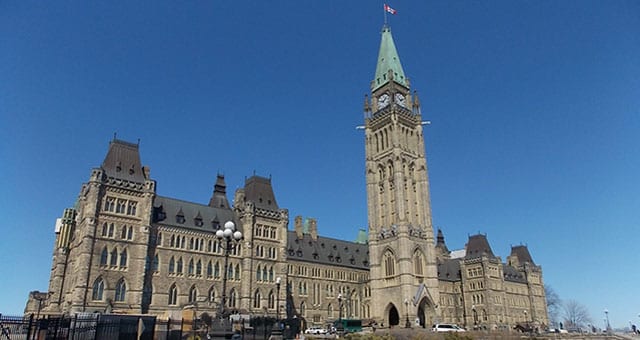
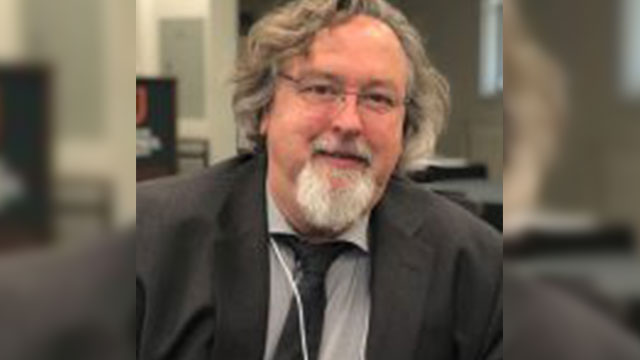




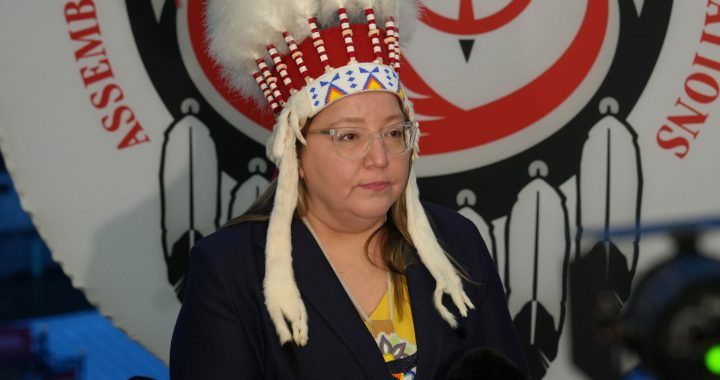

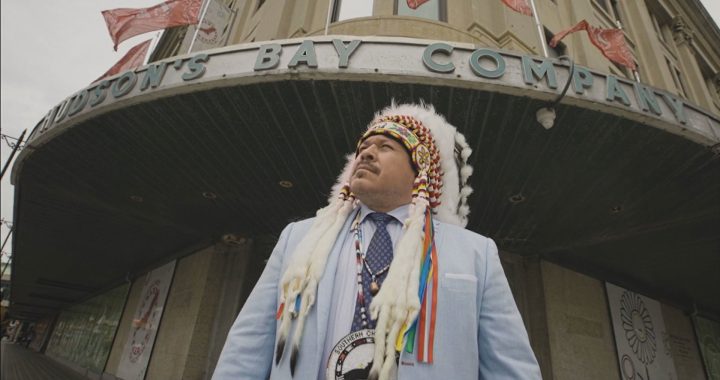

To paraphrase Frank Zappa:”I’m not (native). But there’s a whole lots a times. I wish I could say I’m not white”.
We can’t legislate effects of colonial policies away. At a certain point, we as Native people, must acknowledge that we were wronged, but it is up to us to call on our warrior spirits. It is time to start taking responsibility of our lives.